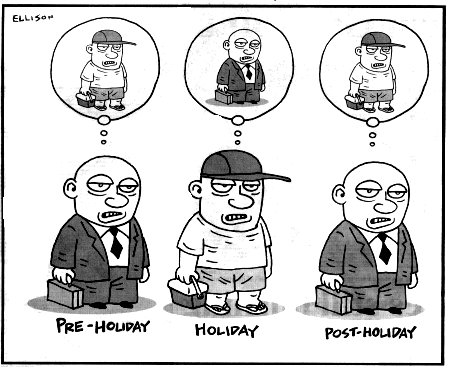


Letter No.138
29 January, 2001
5 January 2001
The Group of Seven leading industrial nations, the International Monetary Fund (IMF) and the World Bank have made an agreement that will cut $34 billion from the debt burden of 22 of the world's poorest countries, mainly in Africa. Anti-poverty campaigners Jubilee 2000 have led a four-year global protest to get third world debts cancelled in the millennium year. This work will be continued by a new group, Drop the Debt. Campaigners want greater relief for those countries already helped, a widening of the scheme for countries left without help, and reforms of the international system to ensure the debt crisis is not repeated.
A $350 million upgrade to Huntly power station will create at least 200 jobs during construction and up to 20 permanent jobs when it is up and running in four years' time.
8 January 2001
The government expects student loan debt to reach more than $4 billion this year. The debt is forecast to grow to $15.5 billion by 2015.
Green Party MP Jeanette Fitzsimons says the upgrade to the Huntly power station is unnecessary, and is part of a competition for market dominance between Genesis and Contact Energy. She says the upgrade could be avoided if the $350 million for the upgrade was spent on making homes and businesses in the upper North Island more energy efficient.
A freak hailstorm in the Wairarapa causes $12 million of damage to apple crops and will put at least 200 people out of work.
Time reports that the US economy is heading for a slump, but of a kind never seen before. It says the stock market is now much more volatile in the information age, and because 49% of Americans own shares, confidence in the stock market is closely linked to consumer confidence, as people spend less when their stocks are doing badly. The NASDAQ technology index plummeted 39% last year, its worst performance in 29 years, as technology industries are struggling to convince people that they need the latest in electronic wizardry. Time also says that this slump, unlike others, may not lead to increased unemployment, because the highly skilled workers of the New Economy who have lost their jobs find new work quickly. It also warns that the interdependent nature of the world's economies means that America's slump has the potential to produce a global recession.
9 January 2001
Figures released by Revenue Minister Michael Cullen show that former NZ students, now overseas, owe $175 million in unpaid student loans.
10 January 2001
Poorer schools are likely to be affected most as NZ suffers a severe shortage of secondary
school teachers, according to the principal of Wellington's Newlands College, Paul Richardson. He
says teachers can now be selective about where they teach, and state schools are becoming
divided into those that are "rich and successful" and others that are "poor and failing".

11 January 2001
Australia's economy gained 39,600 jobs in December, after losing jobs in the three previous months. The official jobless rate remained unchanged at 6.6%. See story in this issue.
14 January 2001
A worker shortage in Queenstown is being blamed on a lack of affordable accommodation for employees. Winz Southern Commissioner John Allen says they have clients who could fill the positions if they had somewhere to live. He says there are 150 job vacancies in hotels and supermarkets in Queenstown.
15 January 2001
Computer mapping company Terralink collapses into receivership, putting 280 jobs at risk, although the government predicts that layoffs will be minimal. Terralink is the first state-owned enterprise to be put into receivership.
16 January 2001
67 contractors who were working on an EDS project with Terralink have lost their jobs as the result of the company's collapse.
A member of the Christchurch City Council's Poverty Taskforce, Dr Paul Dalziel, says some Canterbury employers believe the unemployed are not taking the jobs available, but there is no proof that this is true. He also notes that employers believe that the unemployed did not have the skills they require, or they prefer to stay on the dole. The Poverty Taskforce will be investigating the employers' claims.
17 January 2001
In an editorial, the Sydney Morning Herald says if incoming Employment Minister Tony Abbott is to be effective, he will need to change his counter-productive "bully rhetoric". It says the role of Employment Minister will require him to be more sensitive to general community interests. The paper does not question that he's capable of doing the job, as long as he is able to … "lose the attitude and concentrate on being fair _ as well as firm". See story this issue.
18 January 2001
Industry New Zealand names Neil Mackay its first chief executive. See story in this issue.
The Marlborough economy is booming, but local employers say the region is struggling to find willing and able workers to put in the hours in orchards and vineyards, and qualified and experienced tradespeople are scarce.
Job ads have dropped sharply in Auckland, Wellington and Christchurch in December, and fell nationwide by 0.8%, according to the latest ANZ job ads survey. The survey said ads usually declined over Christmas, but the fall was greater than in previous years.
19 January 2001
Government ministers are debating how much public money should go into setting up the new NZ Post-run "People's Bank". Cabinet's business committee is expected to discuss a detailed proposal for the bank next Wednesday, and the full Cabinet is likely to discuss the proposal at its meeting the following week. NZ's biggest retailer, The Warehouse, is also currently working on a similar project.
21 January 2001
The Child Poverty Action Group releases its report into the impact of Government policy on child welfare. See story in this issue.
British schools are now so desperate for teachers they are travelling to NZ to recruit staff, and concern is increasing in NZ that the country is heading for a teacher shortage crisis. The secondary school teachers' union, the PPTA, predicts that another 2,500 secondary school teachers will be needed to cope with a peak in the secondary school roll in 2007.


Top of Page
This Letter's Main Page
Stats |
Subscribe |
Index |
The Jobs Letter Home Page |
The Website Home Page
jrt@jobsletter.org.nz
The Jobs Research Trust -- a not-for-profit Charitable Trust
constituted in 1994
We publish The Jobs Letter









